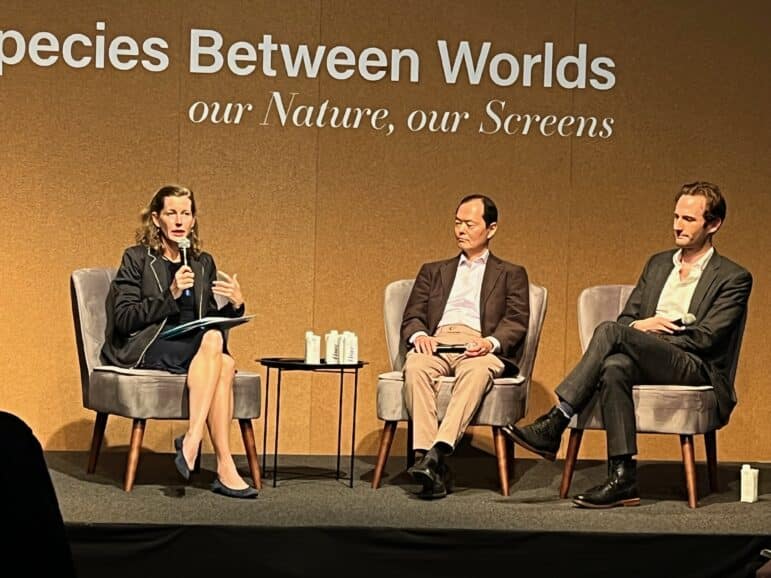
Forum Discusses A.I., Ecology and Earth Ethics
Artificial intelligence is rapidly reshaping countless aspects of modern life, but its implications for the planet do not always command attention. On Wednesday, September 28, more than 35 guests joined a Center for Earth Ethics at Union Theological Seminary forum, “A.I., Ecology & Earth Ethics,” to discuss the profound implications of A.I. for the environment.
Rapid advances in technology “challenge the very notion of God, ” said Rev. Fred Davie, senior strategic advisor to Union Theological Seminary’s president, in his welcome. Efforts to understand “the interaction between technology and culture” are necessary, he said, because A.I. is not an “ethically neutral phenomenon.”
Executive Director Karenna Gore, who moderated the discussion, noted that the world is witnessing the “advent of technologies unlike what we have seen in the past.” “We’ve designed an entire economic system that doesn’t take account of nature,” she said.
Gore highlighted the limitations of new technology in the face of the climate crisis. A.I. “doesn’t measure human connection to the environment,” she said.
Ken Kitatani, the director general of the International Council on Environmental Economics and Development, offered a multicultural perspective. In the West, he sees “more of a fear-based culture,” with “a dichotomy between good and evil.” In much of Asia, however, there is “not as much fear concerning technology and A.I.,” he said. People “don’t categorize things in either way.”
“At the end of the day, it comes down to systems of governance,” said Kitatani, a former chair of the United Nations Committee on Spirituality, Values and Global Concerns. He noted that A.I. is designed so that it “will never take a dominant role.”
“A.I. is a tool, a double-edged sword,” he said.
Isaac Sharp, who teaches theological studies at Union, highlighted contradictory reactions to A.I. On the one hand, there is “techno-utopianism,” the notion that “this stuff will save us.” This idea “has parallels with certain kinds of religious sentiment,” he said.
On the other hand, Sharp noted that A.I. algorithms “reproduce gender, racial and economic equalities” and “struggle to embody democratic norms.” And, in a pattern that presents troubling implications for the planet, A.I. being used “to make us more efficient consumers.”
“We must include faith traditions,” he said, as we evaluate and use A.I.
This salon was held in the forum within “A Species Between Worlds,” an interactive exhibit on West 26th Steet in Manhattan. This exhibit, organized by artist/photographer John Mack, focused on how A.I. is shaping our perceptions of reality.
Mack, who was in attendance, shared his skepticism about elements of A.I. “What augmented reality really is,” he said, “is augmented illusion.”
N.B. This post has been updated to include the link to the event video.
